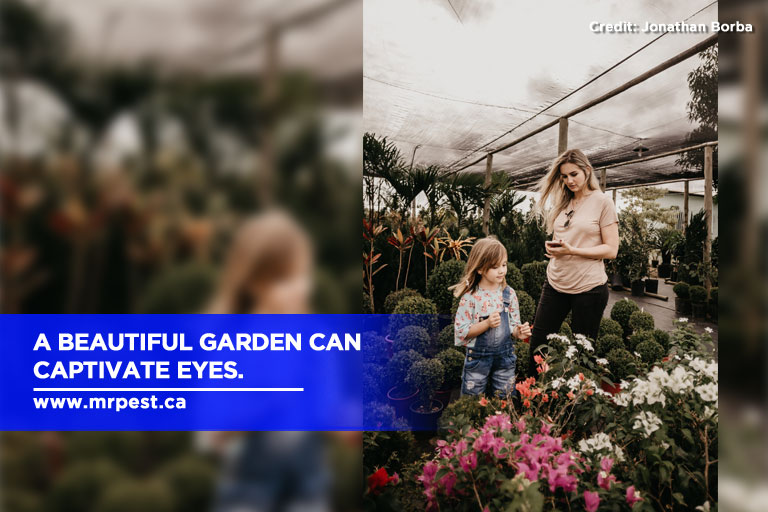Insects can either be our friends or enemies in the garden. While some are beneficial for certain plants, many of these tiny critters can wreak havoc on a bed of beautiful garden plants. After investing time and effort taking care of your plants, it can be heartbreaking to find out that pests have caused severe destruction to your garden.
Let us take a look at the most destructive garden pests and what you can do to stop them:
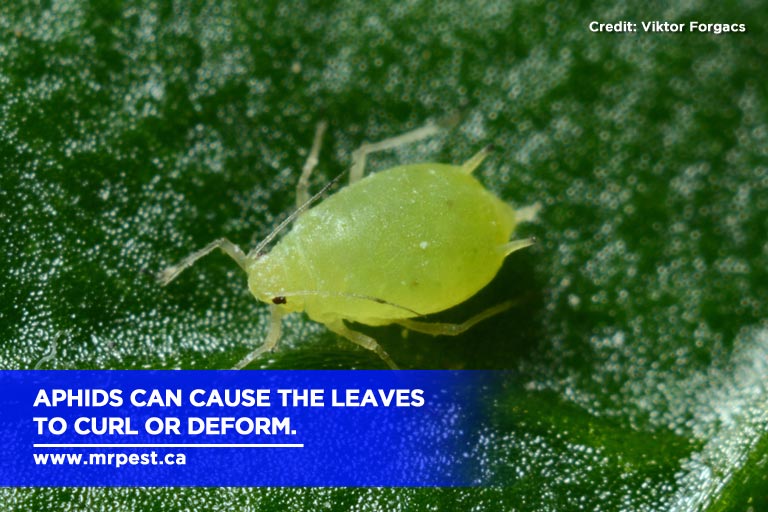
- Aphids – Aphids are tiny, pear-shaped pests that suck the sap of the plant, causing the foliage to distort and leave to drop prematurely. Affected plants show stunted growth. Also, these pests secrete honeydew on the leaves which encourage sooth mould growth. They can also spread viral diseases on plants. Without immediate treatment, the plants can die. Here are some tips on how to get rid of aphids:
- Use a strong spray of water to wash plants.
- Apply garlic repellent or hot pepper spray.
- Apply horticultural oil, insecticidal soap, or neem oil to control severe aphid problems.
- Use floating row covers to protect the plants.
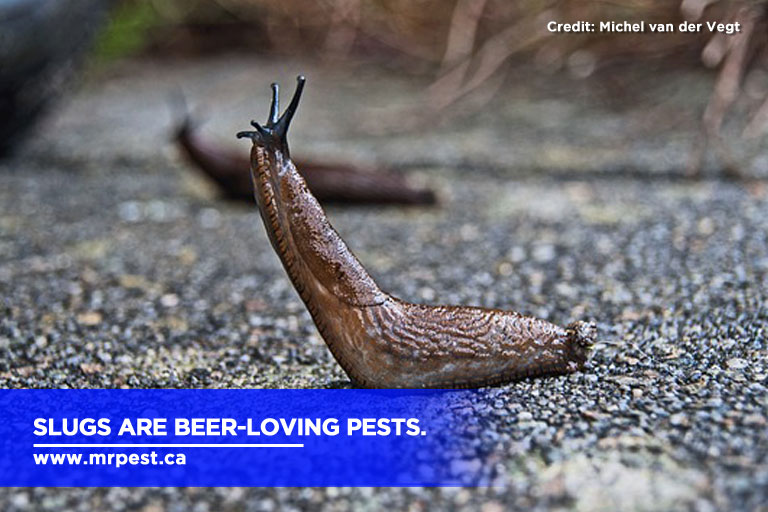
- Slugs – Slugs are slimy, brown or gray-coloured, soft-bodied, mollusks that grow about an inch. These slow-moving creatures usually take shelter in shady spots in the day and feed just about everything in your garden. They leave unsightly holes in the foliage. Slug problem is more prevalent during the rainy days. Follow these simple techniques help eliminate slugs in your garden.
Placing traps around your garden helps control serious slug problems. Slugs love beer, just like humans do. To get rid of slugs in your garden, simply fill an empty tuna or cat food can with beer to entice slugs. Overnight, the slugs feast on beer and they will eventually fall in and drown in the can. Sprinkle can with salt and throw the entire can away. Replace it with a fresh batch.
Wood ashes, sharp sand, crushed seashells or diatomaceous earth can be scattered around the stem to discourage slugs eating your plants.
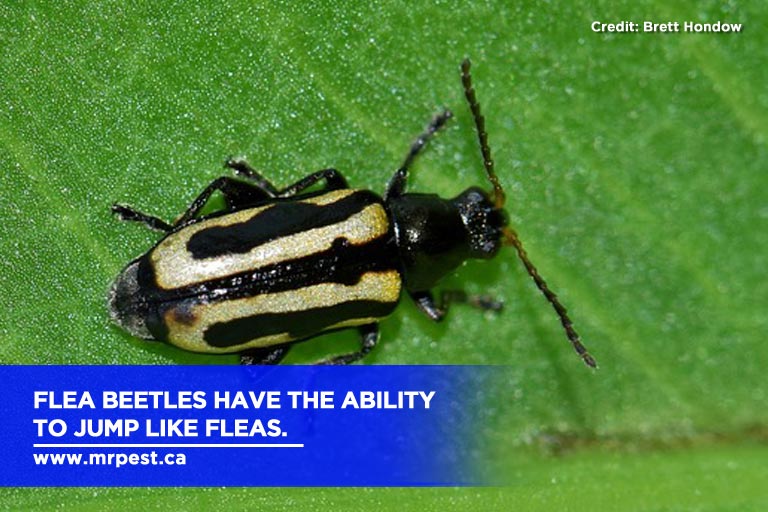
- Flea beetles – These small, dark-coloured beetles are found throughout North America. They usually thrive and feed on most vegetable crops and jump like fleas when disturbed. Larvae feed on plant roots while adult flea beetles munch on leaves, creating small, round holes.
To control flea beetles, use floating row covers to protect plants. Drizzle plants with garlic spray or kaolin clay to discourtage them climbing on the plants.
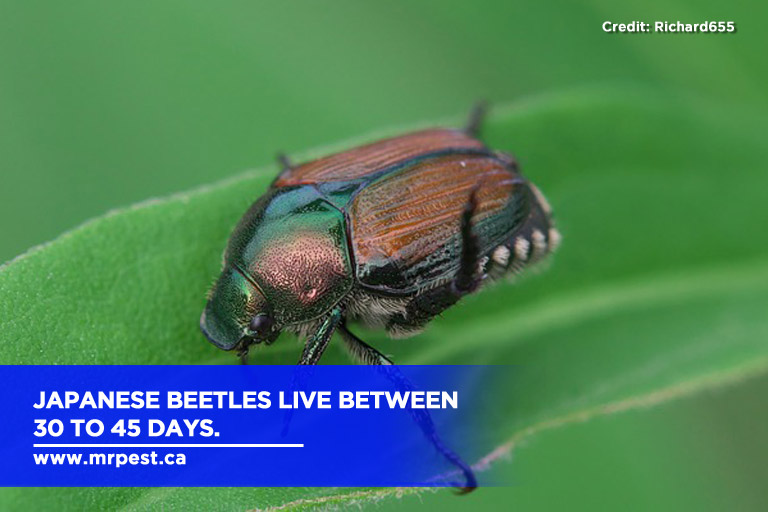
- Japanese beetle – Adult Japanese beetles are metallic blue-green insects with bronze wind covers and can grow about half an inch long, while larvae are fat, white grubs with brown-coloured heads. They usually feed on vegetables, flowers, and small fruits. They are destructive creatures that defoliate plants by chewing their flowers and skeletonizing leaves while larvae feed on plant roots and lawn.
Here are some ways to get rid of Japanese beetles: apply floating row covers, shake or handpick the beetles from plants in the morning, spray beetles with insecticidal soap, or place multiple baited traps upwind of your garden on two sides.
- Scales – Adult males are tiny, flying insects while females resemble hard or soft bumps on plant stems. Larvae scales are minute, soft-bodied, critters with threadlike mouthparts. They usually thrive on indoor plants, ornamental shrubs, and fruit trees. Scales suck out plant sap. Over time, plants become weakened, yellow, drop leaves, and die. They also excrete honeydew onto foliage and foliage.
To protect plants from scales, prune affected plant parts. Gently scrub scales from twigs using a soft-bristled brush and soapy water and rinse well. Spray infested plant part with neem oil or summer oil.
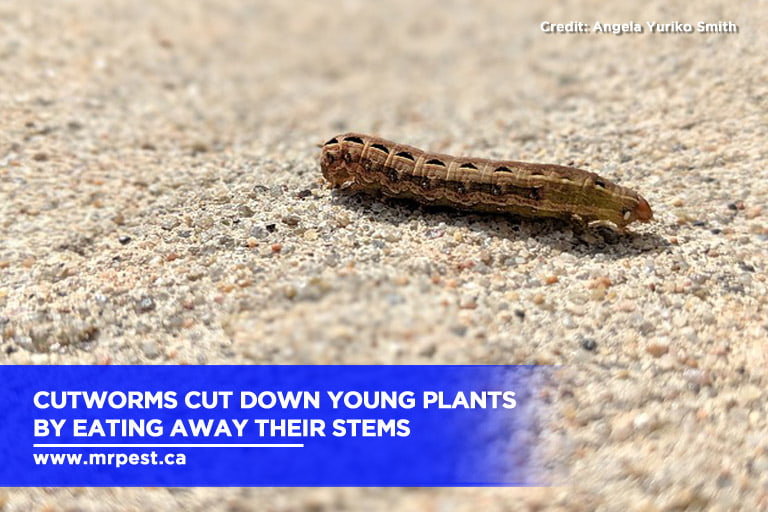
- Cutworms – Cutworms are plump moth larvae that grow about one inch long. These nocturnal pests can be found hiding beneath the leaves or within the top layer of soil during daytime and feed on the stem at night. Here are some helpful tips to prevent cutworms from destroying newly planted seedlings:
Before planting, simply cultivate soil shallowly and remove cutworms by hand. Make collars from toilet paper cardboard rolls or plastic drinking cups to protect young seedlings. Do not plant seedlings right away. Wait for a few weeks until the stems grow thicker to resist cutworms.
- Tarnished plant bugs – These fast-moving pests are usually found on vegetables, fruits, and flowers throughout North America. They suck plant sap and juices, causing leaves and fruit to deform. This also causes the plant to become wilted and stunted.
Ways to control these bugs include applying floating row covers, spraying neem oil to young nymphs, and attracting insect-eating birds to your garden.
Building Healthy Garden Soil
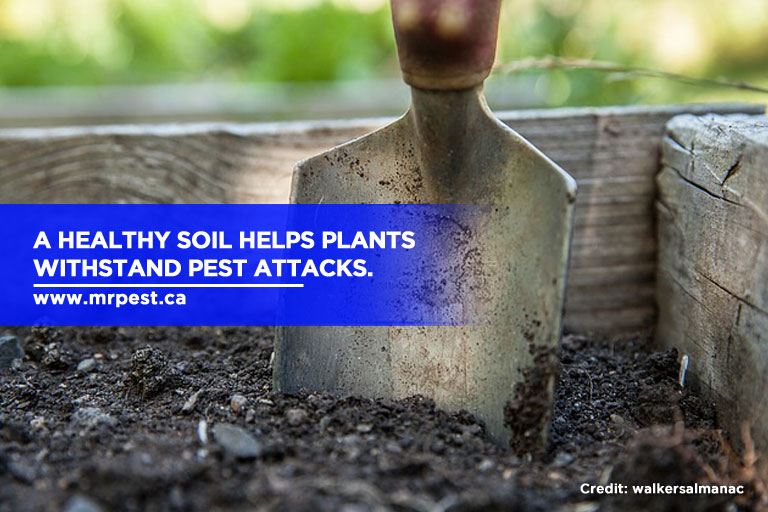
Prevention is the first and best line of defence against destructive garden pests. The quality of soil plays a crucial role in plant growth. Soil does not only supply nutrients, oxygen, and water, it also provides root support that plants need to live. Also, experts claimed that plants planted in healthy soil can effectively withstand pest attacks.
Try these five best practices to build healthy soil:
1.Limit your soil disturbance – While many people think that turning or cultivating the soil regularly allows plants to breathe, it can leave the soil surface bare, increases potential runoff, harms earthworms and soil microbes, and causes soil erosion and compaction. To prevent these problems, limit soil disturbance to a minimum to help preserve the soil’s living systems. You can improve the soil quality, layer amendments on top and allows earthworms to naturally ventilate the soil.
2.Compost – Compost helps enrich the soil, retain moisture, and prevent plant diseases and pests without the use of chemical fertilizers. Starting a compost bin is simple. Simply jazz up one to two-inch of well-decomposed organic materials, such as coffee grounds, fruit and vegetable waste, and dead leaves, to your garden every spring. This helps supply nutrients in the soil and supports a healthy soil structure.
3.Mulch – Mulch helps minimize water evaporation, regulate soil temperature, suppress weeds, prevent soil compaction, and fortify slowly decomposing organic materials to the soil. Simply add two to four inches of mowed leaves or grass clippings to the garden when plants are at least four inches high.
4.Rotate your pants – When plants are repeatedly planted in the same beds, it increases soil-dwelling pest populations, causing crop yields to decrease. Rotating crops to new beds each season can effectively reduce the pest population.
When it comes to effective and long-term pest control, it is best to let the experts take care of your garden pest problems.
Mr. Pest Control has consistently provided reliable and quality pest control services in Barrie and neighbouring areas, including Orillia, Midland, Collingwood, and Allison, for over 27 years. We only use Health Canada-approved products to ensure the safety of your clients. Call our Barrie office at (705) 739-7378. Let us be partners in keeping your gardens and homes a safer and pest-free place.

